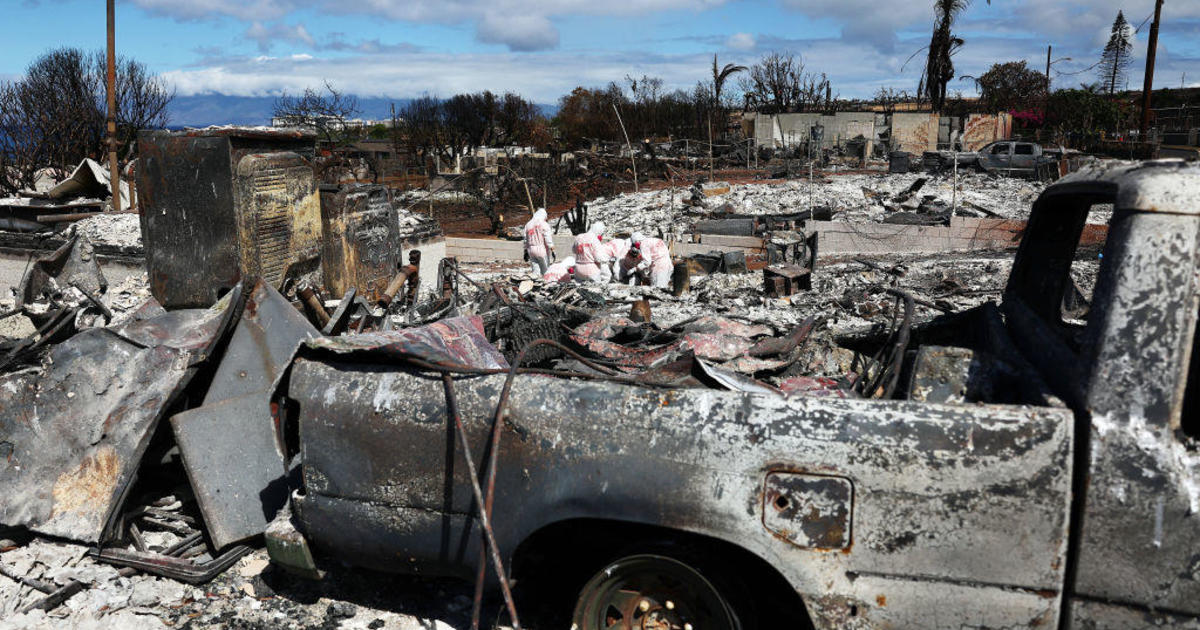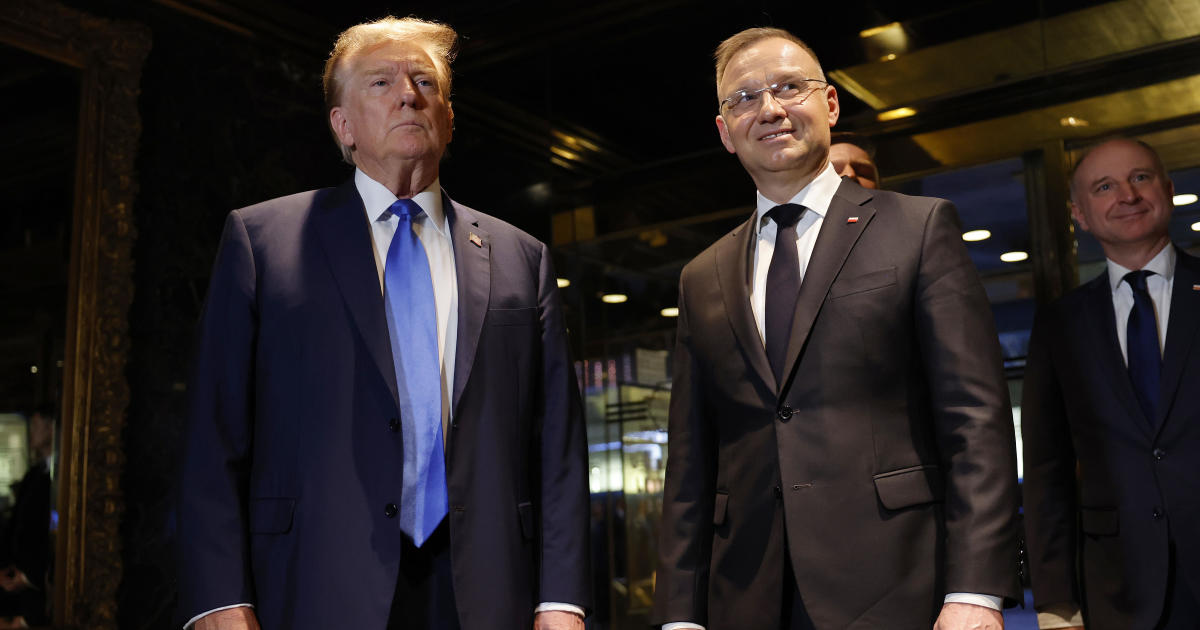ICYMI: Top takeaways from this week's "Face the Nation": How health officials failed the White House
This week on "Face the Nation" as the West Coast struggles to beat back devastating fires in a COVID-complicated world, the candidates enter the final phase of the 2020 campaign. But the White House is forced to play defense as new revelations raise questions on what President Trump knew, and when.
Here's the big takeaways from Sunday's episode of "Face the Nation"
1. Kirby on keeping his airline afloat
- On the cusp of an election and in the midst of a national health crisis, it would not seem good politics to allow mass layoffs of Americans across broad swaths of U.S. industry. Yet Congressional talks to craft any new emergency aid package for jobless benefits or lifelines to troubled industries are stalled.
- That means that within the next two weeks or so U.S. air carriers are warning that the plan to cut tens of thousands of jobs by October once the terms of the CARES Act expire. That emergency financial support package cobbled together by Congress set aside $50 billion for the U.S. travel industry and required airlines to keep employees on the payroll.
- United Airlines CEO Scott Kirby told us that he plans to cut 16,000 jobs but is working with unions to try to reduce that number. The bottom line is that large parts of the economy cannot recovery until there is vaccine, and in the meantime companies are just hoping to stay afloat.
- Kirby warned: "without more government support for the whole economy, there's going to be more layoffs to come across the economy."
- "And in a business like ours, demand is not going to come back until people feel safe being around other people. And that's going to take a vaccine. And that's just the reality. Some businesses can recover earlier, but in aviation and all the industries that we support, it's going to take longer."
2. So when will that vaccine be ready?
- Pfizer is investing one and a half billion dollars to develop a COVID-19 vaccine. If its scientists fail then the cost will hit the pharmaceutical giant's bottom line. Unlike six other vaccine developers, Pfizer declined to accept U.S. taxpayer funding to offset those costs. The company's CEO Albert Bourla argued that he did so to "liberate" scientists from bureaucracy and thus to be more nimble.
- What Bourla said: "When you get money from someone that always comes with strings. They want to see how we are going to progress, what type of moves you are going to do. They want reports. I didn't want to have any of that. I wanted them- basically I gave them an open checkbook so that they can worry only about scientific challenges, not anything else. And also, I wanted to keep Pfizer out of politics, by the way."
- How will Americans get the vaccine? "The how I think is going to be very difficult for the government to do it. Likely they will collaborate with us because shipping medicines, it is complex and particularly when you want special storage conditions. But we know how to do it very well. So I think it's going to be a collaboration between the government of each country and us"
- Why it matters: Once a vaccine is found to be effective and verified by the FDA to be safe for consumers, the question becomes one of logistics and availability. As we saw during the epidemic peak in New York, supplies can get hoarded or bottlenecked which creates hiccups and makes sorting out the arteries of distribution a very key element.
- Bourla has previously said that the Pfizer vaccine trials involve two doses and that they needed to be stored at extremely cold temperatures. We know that the CDC has advised Governors to expedite distribution centers, and contracted with McKesson to help distribute the vaccines and supplies.
- Sunday, he advised that the government should NOT take over the distribution of the vaccine and that Pfizer would instead want to collaborate with the U.S. government. Bourla said it is a "likely scenario" that a vaccine is developed and available by the end of the year. Pfizer has already made "hundreds of thousands of doses" and expects to know by October if they work.
3. Gottlieb on vaccine availability and failures at the highest level
- Who will get a vaccine when it is complete? The former FDA chief Dr. Scott Gottlieb predicts that "most people will not have access to a vaccine until 2021." However, he said some vaccine could be available to a select group far sooner. Demand will be high and Gottlieb predicts a very staged market entry.
- "What it's likely to be is offered under an emergency use authorization to a very narrow population, initially, perhaps front line health care workers and first responders, maybe people above a certain age who were- who are more likely to have a bad outcome from COVID. And then after the FDA gets more experience with the vaccine and after the original data set from these clinical trials continues to mature, then the FDA is going to slowly walk down that approval, meaning let it be available to successively larger groups of people while they collect very rigorous evidence in the post-market. So this is likely to be a very staged market entry."
- How will it work? "I think we're going to be using this vaccine, at least initially, almost in a therapeutic sense. We're not going to use it like we use a traditional vaccine where you broadly vaccinate a population to try to prevent the virus from spreading across the population. What we're going to be doing is targeting the vaccine to select- select groups of people who are at very high risk of a bad outcome from COVID to try to reduce their risk. But it's not going to be used to achieve broad-based immunity, at least in 2020, perhaps in 2021"
- In the fallout of revelations that President Trump downplayed the threat of COVID-19 at the outset of the devastating virus, Gottlieb told us he believes federal health officials "failed" White House leadership in the early days of the outbreak by neglecting to identify where it was spreading.
- What Gottlieb said: "I think in this respect, the White House leadership was failed by health officials. We did not have a diagnostic in the field, so we couldn't screen for it. We should have. We should have started working on that in January. And we over-relied on a surveillance system that was built for flu and not for coronavirus without recognizing that it wasn't going to be as sensitive at detecting coronavirus spread as it was for flu because the two viruses spread very differently. Those were two critical failings. Now, you could say, well, the president put those people in place, he's responsible. You know, you can make second-order arguments around that. But I think ultimately the White House did not have the information they need to make decisions. The key function of agencies and the government is to provide policymakers with accurate, actionable information. The White House didn't have it. And I had a lot of conversations with the White House over this time period because I was concerned it was spreading here, and I was pushing them on that. And they were- they were telling me over and over that they were hearing from top officials from the agencies that they were pretty confident that it wasn't spreading here. I think when history looks back, that's going to be a key moment. That's what was going on over February."
- Why it matters: Gottlieb's comments come as President Trump faces criticism for acknowledging to journalist Bob Woodward he deliberately downplayed the threat of the coronavirus in the early weeks of the pandemic. Gottlieb acknowledged that while one could place the onus on Mr. Trump for appointing the nation's top health officials, "ultimately the White House did not have the information they needed to make decisions."
4. Governor Kate Brown on the "wake up call" that is Oregon's fires
- Oregon Governor Kate Brown said that the wildfires ravaging her state and the West Coast are the result of two major factors: climate change and decades of mismanagement of forests. She said both issues need to be dealt with in order to gain control of these persistent threats. The origin of the fires is still under investigation.
- What Governor Brown said: "It's decades of mismanagement of our forests in this country, and it is the failure to tackle climate change. We need to do both. And we can."
- Why it matters: The devastation on the West Coast has become politically charged. Many Democrats argue that Republicans are simply denying scientific fact by refusing to acknowledge a linkage between humans' contribution to pollution damage and the severe changes in weather patterns being experienced by this country.
- Republican critics of the West Coast Democratic Governors - including the President himself - focus in on mistakes or lack of action at the state level by elected officials to deal with local problems and conditions that may have contributed to the conflagrations. Mr. Trump said at a Nevada rally this week that it all came down to "forest management." Governor Brown's acknowledgement that both are indeed factors took the ideological politics out of it.
5. Sue Gordon's warning ahead of November 3
- Sue Gordon is a cyber security and intelligence expert having spent nearly 40 years with the CIA and other agencies. She left government last year after serving as the Deputy Director of National Intelligence. She said she's confident about election infrastructure but concerned about misinformation that could ultimately suppress the vote.
- Sowing doubt in our democratic process is incredibly damaging. Gordon said the president carries "disproportionate responsibility" for undermining U.S. institutions and sowing doubt about trusting the voting process. She said that's doing our adversaries' work for them.
- However, she said Democrats also need to be more careful in their language because accusing the president of being "malfeasance or evil or being controlled" because of a policy difference is also damaging to our system.
- How can you avoid being manipulated this election? Gordon offered this advice: "Two ways I would say is for every individual, stop forwarding, sending messages that you don't know the origin. We know that on everything from COVID to mail fraud, our adversaries are amplifying putting messages in that look authentic. And if citizens just keep sending that out, we're doing a pretty good job. So stop amplifying messages and forwarding message that you don't know their origin. And the second is start being some- doing some critical thinking when you receive information and if it's someone telling you what to think or that you can't believe then do some research on your own. And cybersecurity across the board. Pay attention to cyber hygiene. It'll save a lot of heartache."
Battleground Tracker: Biden's Edge
- New CBS News Battleground tracker polling shows Joe Biden has moved out to a small lead in Arizona, ahead by three points, up from the tied race we found in July.
- Coronavirus concerns remain for many, and are still tied to vote: the more concerned a voter is, the less likely they are to be voting for President Trump. In Minnesota, Biden also has a substantial nine-point lead, backed by improvement over Democrats' 2016 performance with college-degree holding voters, particularly college-educated White women, as in many other states.
- Watch more of Salvanto's analysis here.
Missed Sunday's episode? Click here to watch the show. "Face the Nation" airs Sunday mornings on CBS. Click here for local listings.




